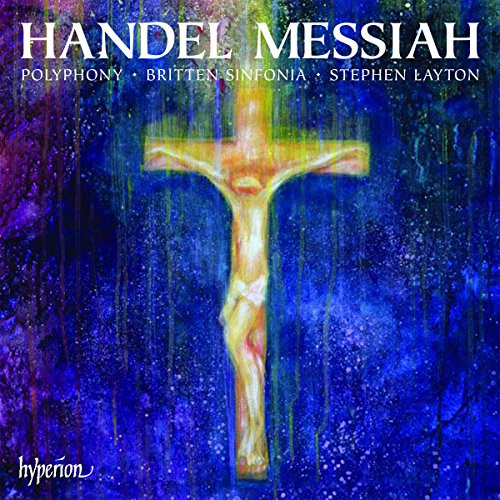Product Description
The Dunedin Consort's Dublin version of Messiah was Linn's fastest selling album of 2006 and was described in many publications as the top choice Messiah for 2006. The recording was given four stars by The Times, The Guardian and BBC Music Magazine, chosen as 'Album of the Day' on AllMusic.com and selected in The Scotsman's 'Top Ten classical music moments of 2006'.
This sought-after recording was also nominated in the 2007 Gramophone Awards.
What makes this Messiah so special is that it is the first recording to seriously explore the version and performing forces that Handel used for his legendary Dublin premiere. This unique recording signifies an exciting and historically considered representation of Messiah, which recaptures something of the freshness of the first public performances.
"The freshest, most natural, revelatory and transparently joyful Messiah I have heard for a very long time." Gramophone
Top Ten classical music moment of 2006: "If I had to make a choice between recordings, my money would go on Dunedin's Messiah." The Scotsman
"Youth, freshness, joy: these are the chief characteristics of this intimate new Messiah from the talented Dunedin Consort." (four stars) The Times
"Butt has an authoritative bass in Matthew Brook, and a superb contralto (one of three) in Clare Wilkinson." (four stars) The Guardian
"The Dunedin artists are stylish, fresh sounding in their choral singing and often more intimate than other versions in their manner of communication."
Performance (four stars) / Sound (four stars) BBC Music Magazine
"Here's a reconstruction of the premiere in Dublin - and it's very welcome. Nothing but praise." Classic FM Magazine
Album of the Day: "One of the most compelling and engaging Messiahs on disc." Allmusic.com
"In some ways the most interesting [new Messiah recording] is the Linn recording. The playing of the Dunedin Players under John Butt is admirably crisp, and the singing of the Consort disciplined and clear in enunciation." Sunday Telegraph
Review
From our Linn friends in Scotland comes an attractive new recording of Handel's Messiah in the 1742 Dublin version, performed by the Dunedin Consort and Players under director John Butt. Why Dublin? One reason that comes to mind is that it was the first place where Handel's masterpiece was a success. Hard as it is to believe in view of the fact that Messiah is now a universal classic (it was, in fact, the first classic, in terms of being revived year after year, in the history of music), it was a dismal failure in its early performances in London. The change of scenery was just the tonic it needed. The lilting quality of Handel's arias must have appealed strongly to the Irish. In addition, Dublin was far enough away that Handel was able to use one of his favorite singers, Susannah Cibber, who was then box office poison in London due to an extramarital affair that had dragged through the courts. In the Dublin version, he gave her many of the recitatives and arias that we are accustomed to hearing sung by other, particularly tenor, voices, including the final aria "If God be for us." (In this recording, her part is sung very capably by contralto Claire Wilkinson.) Always the resourceful composer, Handel was adept at tailoring the vocal parts to the singers at hand. One striking difference is the soprano aria "Rejoice greatly, O Daughter of Sion," which sounds quite different from the version we're used to hearing due to the additional color and the bouncy spring rhythm Handel added to his writing.(Here, the part is sung by Susan Hamilton, whose light soprano is a pure pleasure whenever heard.) On the other hand, the Dublin version of the bass aria "And I will shake all nations" doesn't have the sensational trumpet-like intonazione that we're accustomed to hearing, though in other respects the part (sung here by Matthew Brook) follows the familiar lines. Through historical research, the Dunedin Consort determined that
Handel Messiah Dublin Version 1742
Was:
$97.56
Now:
$48.78
- SKU:
- ST539461
- UPC:
- 691062028523
- Condition:
- New
- Availability:
- Free Shipping from the USA. Estimated 2-4 days delivery.







